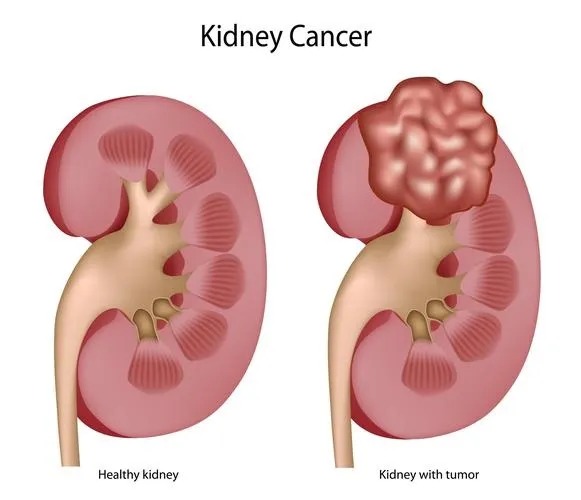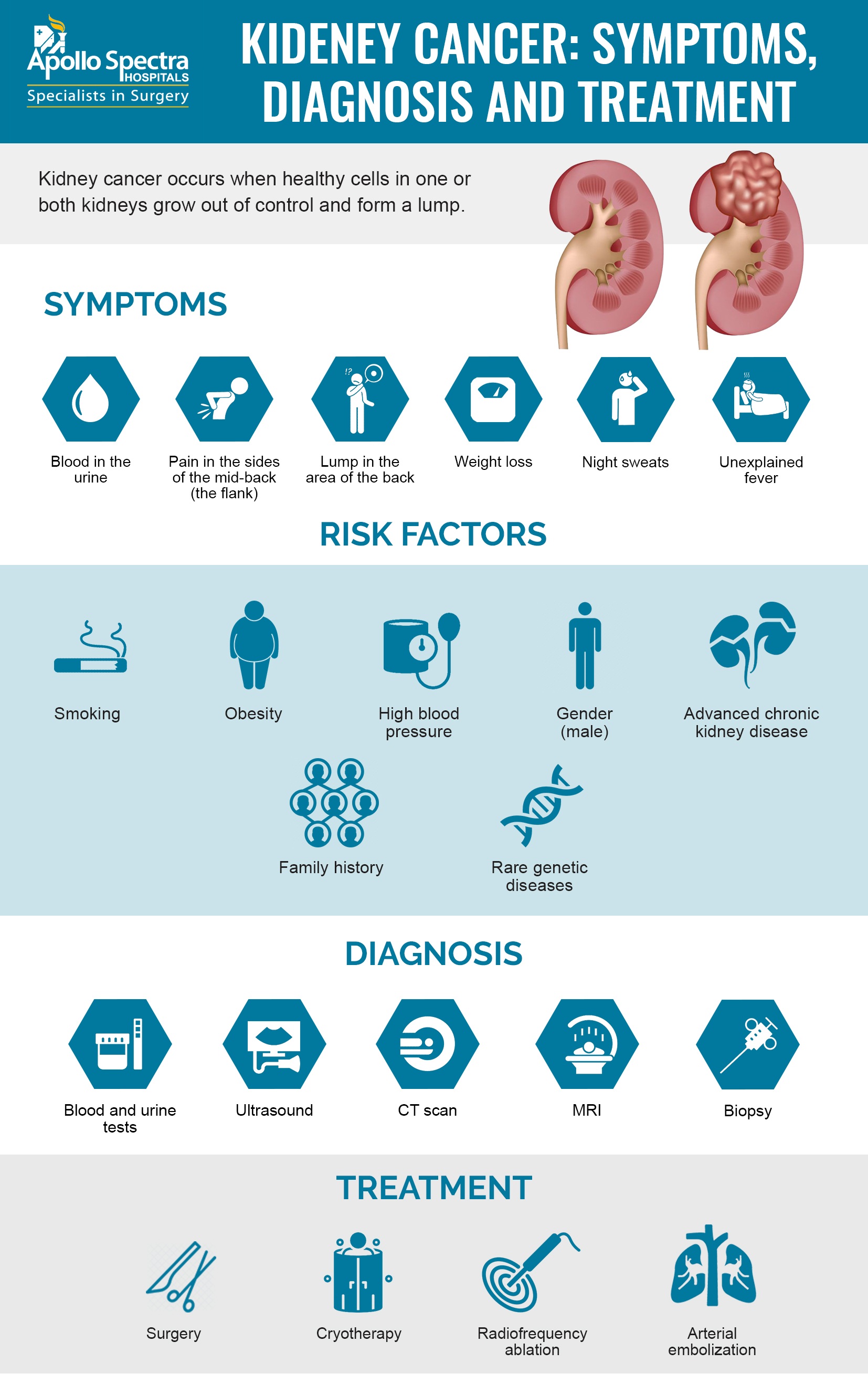Kidney Cancer- Symptoms, Diagnosis and Treatment
March 30, 2020

Also known as renal cancer, Kidney cancer is a condition that causes the kidney cells to become cancerous, have an uncontrollable growth and form a tumour. Nearly all kidneys initially occur in the lining of the tubules in the kidney. Such type of cancer is called renal cell carcinoma. Fortunately, in most cases, kidney cancer is recognized before it spreads to other organs. Cancers can be treated more easily if they are caught early. The tumours might advance before being detected.
The kidney is an important organ located on each side of the spine, in the lower abdomen. It serves the primary purpose of cleaning the blood, making urine and removal of waste products.
Risk factors for kidney cancer
While the exact cause behind kidney cancer is unknown, there are certain factors that can make you prone. As an example, the disease most commonly occurs among people aged more than 40 years. Some knew risk factors include:
- Smokers have a higher risk of developing kidney cancer as compared to someone who doesn’t smoke. Smoking cigarettes or cigars increases risk.
- Males have twice the higher risk of developing kidney cancer than women
- Being overweight or obese also increases the risk as there might be hormonal changes caused by the extra weight
- Using specific prescription or over-the-counter medication for pain over a long period of time may also put you at risk of kidney cancer
- Having an advanced kidney disease
- Having a history of kidney cancer in the family
- Being on dialysis for a long time. Dialysis is used as a treatment of people whose kidneys have stopped functioning
- Genetic ailments like inherited papillary renal cell carcinoma or von Hippel-Lindau disease.
- Exposure to certain chemicals like cadmium, asbestos, benzene, specific herbicides or organic solvents
- High blood pressure or the medication used for treating it might be a source of increased risk.
- Race might be a risk factor as well since black people are at a higher risk
- Patients having lymphoma are also at an increased risk, although the reason behind it is unknown.
If you have these risk factors, it doesn’t necessarily mean that you will be getting kidney cancer. At the same time, you can get the disease despite not having any of the risk factors.
Symptoms of kidney cancer
In several cases, kidney cancer doesn’t show symptoms in the early stages. The symptoms start appearing with the tumour growing larger. Some common symptoms of kidney cancer include:
- Blood in the urine
- Lump in the abdomen or the side
- Losing your appetite
- Persistent pain in the side
- Loss of weight occurring without any known reason
- Extreme fatigue
- Fever that isn’t caused by an infection or a cold lasting for weeks.
- Swelling in the legs or ankles
- Anemia
Kidney cancer may also show the following symptoms if it ends up spreading to other parts of the body:
- Bone ache
- Coughing up blood
- Shortness of breath
How is kidney cancer diagnosed?
You may experience symptoms of kidney cancer like pain in the side, fatigue and weight loss. Your doctor might also find a lump in the side during a routine examination or a sign of kidney cancer might also show up while testing for another disease. No matter what indicates the disease, diagnosis of kidney cancer can only be diagnosed through health history, physical examination, and tests.
During the physical examination, the doctor will check for lumps on the side and abdomen. The doctor will also check for high blood pressure and fever and ask you about your past illnesses, health habits and treatments you have undergone. For confirming the diagnosis, your doctor is likely to order on or more of these tests:
- Urine test
- Blood test
- Intravenous pyelogram
- Ultrasound
- CT Scan
- MRI (Magnetic resonance imaging)
- Renal arteriogram
Unlike other cancers, diagnosing kidney cancer can be done without performing a biopsy, although doctors may use it for confirming the diagnosis. After diagnosing kidney cancer, other tests may be required for determining how far cancer has spread.
Treatment
Different treatment options are available for kidney cancer, with surgery being the first step in most cases. Following surgical procedures may be used:
- Radical nephrectomy
- Partial nephrectomy
- Simple nephrectomy
If surgery is unsuccessful, other options like cryotherapy, radiofrequency ablation, and arterial embolization might be used for destroying the tumour.
Kidney cancer is a condition that causes the kidney cells to become cancerous, have an uncontrollable growth and form a tumour. Nearly all kidneys initially occur in the lining of the tubules in the kidney.
NOTICE BOARD
CONTACT US
CONTACT US
 Book Appointment
Book Appointment


.svg)
.svg)
.svg)
.svg)








